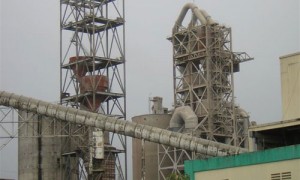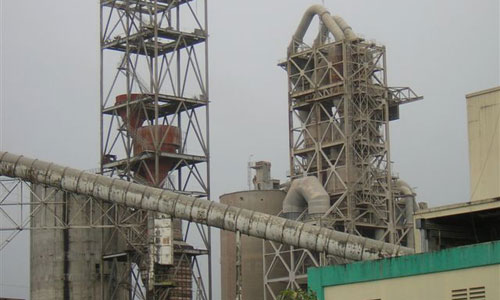 Jaiprakash Associates (JPA), the Jaypee Group flagship, is on the look out for a strategic partner for its cement business, the third largest in the country.
Jaiprakash Associates (JPA), the Jaypee Group flagship, is on the look out for a strategic partner for its cement business, the third largest in the country.
According to the sources close to the development, JPA is open to diluting up to 26 per cent in the business. Jaypee has already roped in a clutch of investment bankers to advise on any strategic stake sale.
Preliminary talks have already begun with large South America conglomerates such as Cemex and Votorantim Group, who have a global presence but are also looking at a bigger India play. A deal, if any, may still take some time to fructify.
However, the company has officially denied any potential stake sale, saying all talks are just market speculation.
Jaypee Cement, with a current capacity of 23 million tonnes per annum, has been scaling up rapidly from being a nine million tonne player in FY’08. It is targeting 35.9 million tonnes per annum by FY’12.
It has also been diversifying out of its primary north and central Indian markets like UP, MP and Himachal Pradesh to west and east Indian markets spread across Gujarat and Chhattisgarh.
It is also making an entry into Andhra Pradesh. Only Holcim — through ACC and Ambuja — and the Aditya Birla Group currently have a bigger cement play than Jaypee in India.
With revenues of Rs.5,456 crore last year, cement today contributes a little over 40 per cent of JPA’s total turnover. So far, the capital employed in this business alone stands at over Rs.15,000 crore, which includes debt and equity. But its pan-India strategy seems to be playing out well as even in the first quarter of this financial year, when the all-India consumption remained flat, JPA had a growth of 10 per cent in cement sales.
Most of JPA’s businesses — cement, construction and real estate — are cash guzzlers. It is also the holding company for the group’s listed independent power company, Jaiprakash Power Ventures, and listed property developer Jaypee Infratech.
But apart from the negative macro business sentiment around its key business verticals, its leverage has been a challenge. In FY’11, the company had a stand-alone debt of more than Rs.21,000 crore. It has been aiming to bring that down to Rs.15,000 crore by this year.
But a deal may not be that easy to conclude, said people following the development closely.
To begin with, the size of the potential deal may turn away many potential suitors. “Even on a conservative basis, for a 26 per cent stake somebody will have to write a billion dollar cheque. And in today’s environment, it may not be easy,” said a person close to the developments.
Even though the valuation expectations are not known, sources said given the scale and size, the promoters were likely to expect a significant premium. Many smaller cement companies have been expecting upwards of $170 million for any deal, making it difficult to conclude transactions in an already crowded market, reeling under overcapacity.
Roping in a partner would imply demerging the cement operations once again from JPA, an exercise that will take time. Many big strategic players are also likely to shy away from a minority stake in a large company and may instead look for a bigger share of the pie.
But the $21 billion Votorantim Group — one of the largest family-controlled industrial conglomerates of South America with interests ranging from cement to mining and aluminum and even chemicals — has taken similar minority positions in the past. Votorantim Cementos, the group’s cement arm, for example has a similar minority stake in Portugese cement maker Cimpor.
Headquartered in Brazil, Votorantim Cementos is among the top 10 cement manufacturers in the world with operations spread across 20 countries in four continents.
The NYSE-listed Cemex of Mexico is also a global leader in building materials, with an annual cement capacity of 96 million tonnes and sales of $14.7 billion.
Its geographical spread includes the Americas, Europe, Middle East and even pockets of South East Asia. However, it has undergone a debt restructuring exercise recently, which may make it difficult to pursue large-scale M&A opportunities just yet.





